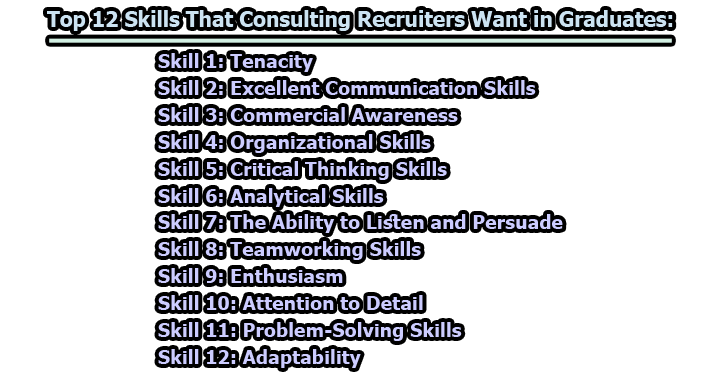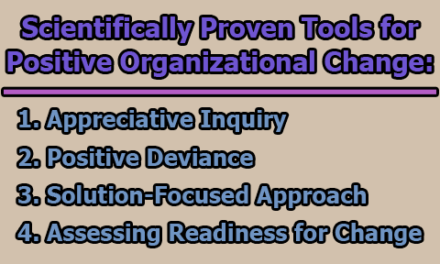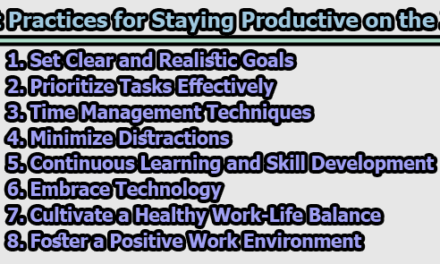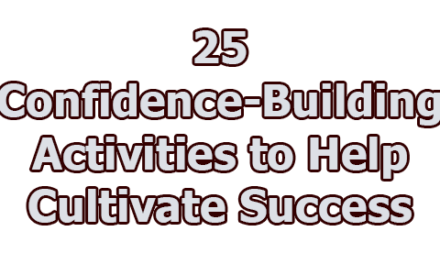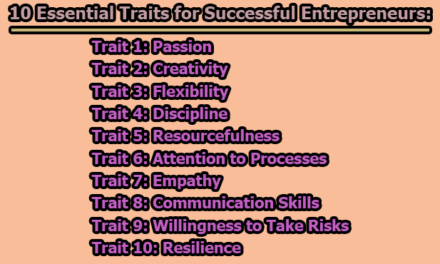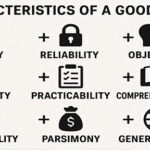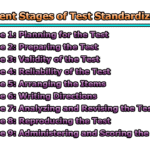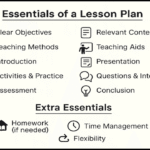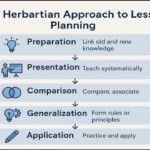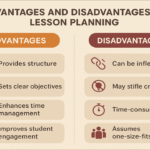Top 12 Skills That Consulting Recruiters Want in Graduates:
Management consulting is a highly competitive and sought-after career path for graduates. With numerous talented individuals vying for limited positions, consulting recruiters carefully assess candidates to identify the skills and attributes necessary for success in the consulting industry. To become a management consultant, graduates must possess a diverse range of skills that go beyond academic achievements. In this article, we will delve into the top 12 skills that consulting recruiters want in graduates. By understanding these skills and learning how to effectively demonstrate them in applications and interviews, aspiring consultants can position themselves as strong candidates and pave the way for a successful career in management consulting.
Skill 1: Tenacity:
Tenacity stands out as the top skill that consulting recruiters look for in graduates. The world of management consulting is demanding and challenging, often requiring consultants to pull out all the stops to deliver exceptional results for their clients. Successful consultants are relentless in their pursuit of solutions and possess the drive to overcome obstacles and find innovative ways to address clients’ needs. Demonstrating determination and drive is essential for consultants to persevere through adversity and consistently meet clients’ high expectations.
In their applications, candidates should highlight long-term projects or challenges they have tackled, emphasizing their ability to persist and achieve success despite adversities. Sharing stories of projects where they faced significant obstacles but continued to push forward, adapt, and ultimately succeed will showcase their tenacity effectively.
Skill 2: Excellent Communication Skills:
Effective communication is a cornerstone skill for management consultants. Consultants work with diverse clients and teams, necessitating clear and concise communication to convey insights, strategies, and recommendations accurately. Strong communication skills are vital in presenting complex ideas in a simple and understandable manner, both to fellow team members and clients.
Throughout the recruitment process, candidates’ communication skills are tested in various settings, such as interviews, group exercises, and case studies. It is essential for candidates to focus on refining their written and oral communication abilities. They can achieve this by practicing mock interviews, seeking feedback on their presentation style, and improving their ability to articulate ideas clearly and persuasively.
Skill 3: Commercial Awareness:
Commercial awareness is the understanding of how economic factors impact businesses and industries. Management consultants must be equipped with this skill to develop solutions that align with clients’ economic contexts. It requires a keen awareness of market trends, industry developments, and the broader economic landscape.
Demonstrating commercial awareness involves conducting thorough research on consulting firms, their specialized areas, recent projects, and competitors. Additionally, staying up-to-date with broader economic and political events that could affect consulting clients is crucial. Candidates can showcase their commercial awareness during interviews by answering questions about the firm, its challenges, and its strategies. Moreover, they can provide insights into how their understanding of the economic landscape influences their problem-solving and decision-making approaches.
Skill 4: Organizational Skills:
Management consulting operates in a fast-paced environment, where effective time management and task coordination are vital. Successful consultants must be skilled at organizing their time and that of others to ensure project deadlines are met and client expectations are exceeded.
In their applications and interviews, candidates should provide evidence of times when they successfully juggled work, studies, and extracurricular activities, demonstrating their ability to prioritize and manage multiple responsibilities. Sharing specific tactics used to manage time effectively and discussing their effectiveness can highlight the candidate’s organizational abilities. Additionally, they can showcase their ability to work under pressure and meet tight deadlines by discussing past experiences where they successfully managed demanding schedules.
Skill 5: Critical Thinking Skills:
Critical thinking is the ability to objectively evaluate information and discern connections between ideas. In the consulting industry, where consultants handle vast amounts of data, critical thinking is essential for spotting trends, identifying patterns, and deriving meaningful insights. Effective critical thinking enables consultants to develop innovative and data-driven solutions for their clients.
During interviews, candidates can demonstrate this skill by breaking down complex information based on available data and arriving at logical conclusions. Consulting recruiters seek individuals who can approach problem-solving with a sharp and analytical mindset. By showcasing their ability to analyze data, identify key insights, and apply them to real-world scenarios, candidates can impress recruiters with their critical thinking skills.
Skill 6: Analytical Skills:
Analytical skills closely align with critical thinking and involve identifying patterns and trends in data to make informed decisions. These skills are valuable for consultants as they analyze various datasets to develop data-driven strategies for clients. Contrary to popular belief, analytical skills are not limited to individuals from STEM backgrounds. Graduates from various disciplines can possess strong analytical skills, which they have developed through coursework, research, or independent study.
Recruiters often assess analytical skills through case study interviews and situational judgment tests, making preparation and practice essential for candidates. Candidates can hone their analytical abilities by engaging in mock case studies and working on problems that require data interpretation and analysis. Articulating their thought process and showcasing their analytical acumen will help candidates stand out during the interview process.
Skill 7: The Ability to Listen and Persuade:
Listening attentively to client’s needs and persuading them that proposed solutions are viable are essential consulting attributes. Consultants frequently work with clients and team members, making effective communication and persuasion critical for successful outcomes. Listening skills enable consultants to truly understand their clients’ pain points and expectations, while persuasive skills enable them to present their recommendations convincingly.
During interviews, candidates can demonstrate these skills by showcasing their ability to listen carefully, critically assess information and opinions, and present persuasive arguments in a constructive manner. Providing examples of how they have successfully persuaded others in past experiences, such as convincing team members to adopt their ideas or persuading clients to embrace new strategies, can add credibility to their claims.
Skill 8: Teamworking Skills:
Management consultants often work in teams, necessitating strong teamworking skills for effective collaboration and synergy. Consultants must be able to contribute to group dynamics positively and work cohesively towards achieving common goals. Successful teamworking involves active listening, effective communication, and a willingness to support and understand team members’ perspectives.
Candidates can demonstrate their teamworking abilities by providing evidence of successful contributions to group projects, sports, arts activities, or committees. Emphasizing the role played in achieving positive outcomes highlights the candidate’s ability to work effectively with others towards common goals. Furthermore, sharing stories of handling conflicts or challenges within a team and how they contributed to resolving them can showcase the candidate’s ability to navigate team dynamics successfully.
Skill 9: Enthusiasm:
Enthusiasm plays a crucial role in a consultant’s client-facing role. A consultant’s demeanor and passion can significantly influence a client’s perception of the consulting firm. Consultants who exude enthusiasm are more likely to inspire confidence in clients, leading to stronger client relationships and project success.
Candidates can showcase enthusiasm throughout the interview process by exhibiting a willingness to learn and a genuine interest in the area to which they are applying. They should engage in conversations about personal passions and maintain positive body language and tone during interviews. Additionally, candidates can display enthusiasm earlier in the process by ensuring that their covering letters or application forms explicitly explain why they want to be a consultant at the specific firm they are applying to. Tailoring their applications and demonstrating a genuine interest in the firm’s work can leave a lasting impression on recruiters.
Skill 10: Attention to Detail:
In management consulting, even minor mistakes in client documents can have significant consequences. Attention to detail is vital to ensure precision and accuracy in consulting deliverables. Consultants must meticulously review and proofread their work to maintain high-quality standards and prevent costly errors.
Candidates can exhibit this skill by submitting error-free applications and seeking proofreading assistance from others. Double-checking for typos, grammar errors, and formatting inconsistencies ensures that candidates’ applications leave a positive and professional impression. During interviews, candidates should demonstrate their attention to detail by providing well-structured and error-free responses to questions. A candidate who pays attention to detail is more likely to impress recruiters and gain a competitive edge.
Skill 11: Problem-Solving Skills:
Problem-solving is at the core of management consulting, and recruiters seek candidates who can effectively tackle complex challenges. Graduates can demonstrate problem-solving skills through their academic studies, extracurricular activities, and work experiences. Providing specific examples of how they identified and solved problems, focusing on their contributions and thought processes, can add depth to their applications and impress recruiters during interviews.
Candidates should think critically about their experiences and identify instances where they were faced with challenging problems and successfully resolved them. It is crucial to highlight the steps taken to address the problem, the strategies employed, and the positive outcomes achieved. By showcasing their problem-solving abilities, candidates demonstrate their potential to add value to consulting projects and contribute to the success of the consulting firm.
Skill 12: Adaptability:
Management consultants operate in a constantly changing environment, requiring adaptability to new situations and information. The consulting landscape is dynamic, and projects often evolve rapidly, necessitating consultants to adjust and thrive in the face of change.
Candidates can showcase adaptability through experiences such as study-abroad programs, internships in diverse industries, or involvement in fast-paced projects. Highlighting instances where they thrived in situations that required flexibility and quick adaptation can demonstrate their ability to embrace change positively. Recruiters are particularly interested in hearing how candidates handled unexpected challenges and how they proactively adapted to changing circumstances.
In conclusion, management consulting is a competitive and dynamic field that demands a diverse set of skills and attributes from its practitioners. By understanding the top 12 skills that consulting recruiters seek in graduates and learning how to effectively demonstrate these skills in applications and interviews, aspiring consultants can position themselves as standout candidates. Cultivating tenacity, communication, critical thinking, and other essential skills can set graduates on the path to a successful and fulfilling career in management consulting. As they embark on this exciting journey, graduates must continuously refine and develop these skills to thrive in the challenging and rewarding world of management consulting. The combination of these skills, along with a passion for problem-solving and a dedication to excellence, will propel graduates toward becoming exceptional management consultants and making a meaningful impact in the business world.
Frequently Asked Questions [FAQs]:
What is management consulting, and what do management consultants do?
Management consulting involves providing expert advice and assistance to organizations to solve complex business challenges, improve performance, and achieve strategic goals. Management consultants work with clients across various industries to analyze problems, conduct research, develop recommendations, and implement solutions. They may advise on areas such as strategy, operations, finance, technology, human resources, and more.
What skills do consulting recruiters look for in graduates?
Consulting recruiters seek graduates with a range of skills, including:
- Tenacity and determination to overcome challenges.
- Excellent communication skills for effective client interactions.
- Commercial awareness to understand economic factors impacting businesses.
- Strong organizational skills to manage projects and time effectively.
- Critical thinking abilities to analyze information and spot trends.
- Analytical skills for data interpretation and problem-solving.
- The ability to listen actively and persuade others effectively.
- Teamworking skills for collaboration and project success.
- Enthusiasm and a positive attitude towards learning and growth.
- Attention to detail to ensure accuracy and precision.
- Problem-solving skills to tackle complex issues.
- Adaptability to thrive in a constantly changing environment.
How can I demonstrate these skills in my consulting job application?
To demonstrate the desired skills in your application, consider the following strategies:
- Highlight specific examples from your experiences, such as projects, internships, or extracurricular activities, where you exhibited these skills.
- Tailor your resume and cover letter to emphasize relevant skills based on the job description.
- Practice interview scenarios to effectively showcase your communication, problem-solving, and analytical abilities.
- Use real-life case studies and data-driven examples to illustrate your critical thinking and problem-solving capabilities.
- Show your enthusiasm for the consulting industry and your dedication to personal and professional growth.
What is the importance of soft skills in management consulting?
Soft skills play a crucial role in management consulting as they enable consultants to connect effectively with others and navigate complex client relationships. Skills like communication, persuasion, teamwork, and adaptability are essential for building strong client rapport, collaborating within consulting teams, and effectively conveying recommendations to clients.
Is a specific academic background required to become a management consultant?
Management consulting firms value diverse academic backgrounds. While some consultants have degrees in business, economics, or engineering, others come from fields like humanities, social sciences, or natural sciences. What matters most is a combination of relevant skills, problem-solving abilities, and a strong willingness to learn and adapt.
What are case study interviews, and how can I prepare for them?
Case study interviews are a common part of the consulting recruitment process. Candidates are presented with real or hypothetical business scenarios and are required to analyze the information and propose solutions. To prepare, practice solving case studies using available resources, such as online platforms and consulting case study books. Focus on structuring your approach, logical reasoning, and effectively communicating your thought process.
How can I enhance my chances of success in the consulting recruitment process?
To increase your chances of success, consider the following tips:
- Network with consultants and attend industry events to gain insights into the consulting profession.
- Develop a strong online presence, including a professional LinkedIn profile.
- Seek internships or work experiences that align with consulting skills and competencies.
- Be proactive in seeking feedback and continuously improving your skills.
- Be well-prepared for interviews and case study assessments by practicing in advance.
- Stay updated on industry trends and demonstrate your commercial awareness.
What opportunities for career advancement do management consultants have?
Management consulting offers excellent opportunities for career advancement. Consultants can progress to become senior consultants, managers, partners, or even transition to executive roles in client organizations. Advancement is often based on performance, leadership abilities, and the ability to develop strong client relationships.
Is management consulting a suitable career choice for recent graduates?
Management consulting can be an attractive career choice for recent graduates who possess the required skills and are eager to take on challenging and diverse projects. It offers the chance to work with reputable clients and gain valuable experience across industries. However, it’s essential to research the consulting lifestyle and demands to ensure it aligns with your career goals and work preferences.
What are some additional resources to prepare for a career in management consulting?
Some additional resources to prepare for a career in management consulting include:
- Books on case interviews and consulting frameworks.
- Online courses or certifications in relevant areas such as data analysis, strategy, and project management.
- Attending consulting workshops or webinars hosted by consulting firms or industry organizations.
- Seeking guidance from career services at your university or alumni who have pursued consulting careers.

Assistant Teacher at Zinzira Pir Mohammad Pilot School and College

